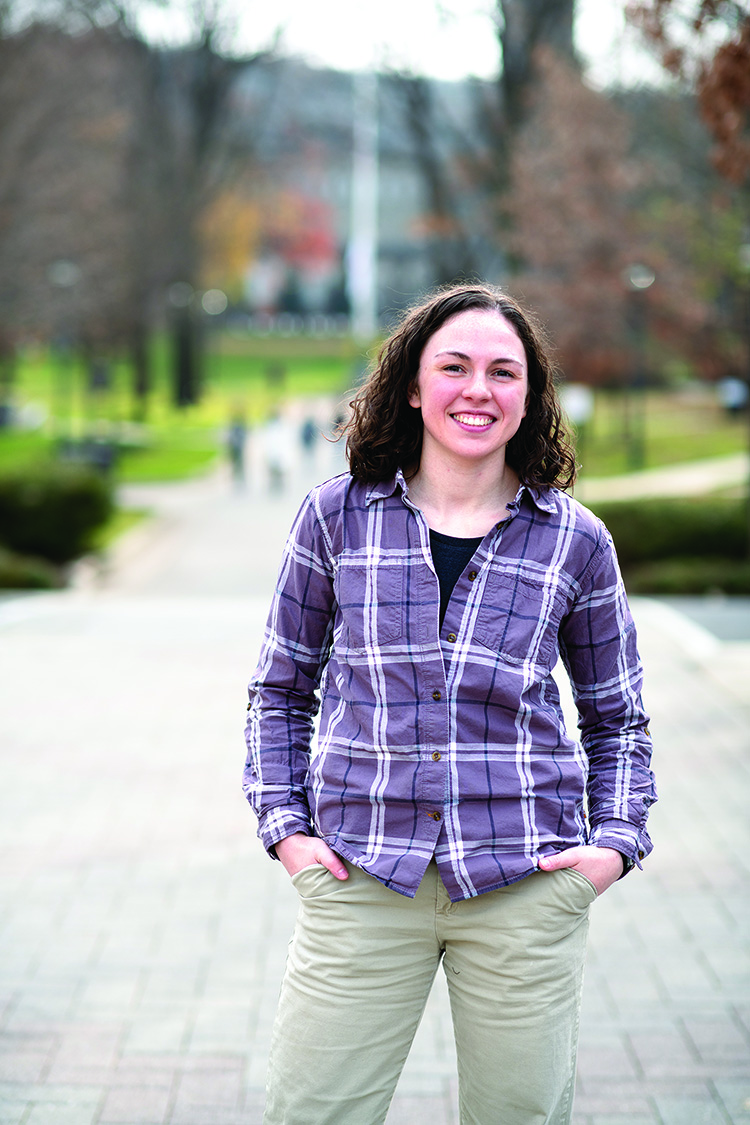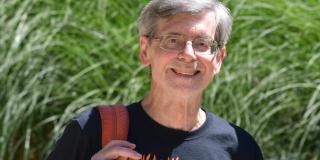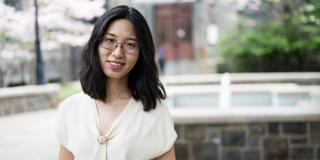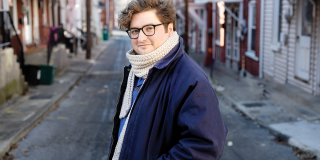Environmental policy student works to help preserve the local environment while developing important restoration policies
Christina Thomas fell in love with economics and how it can be used to lay the groundwork for environmental laws and policies while an undergraduate student at Pace University in New York. That passion continues as she pursues a master’s degree in environmental policy at Lehigh.
 “The ideal graduate program for me was one that would give me the flexibility I needed to gain the skills I needed for the jobs I was looking for,” Thomas says. “I toyed with the idea of getting my master’s in environmental economics, which was my undergraduate degree, or switching disciplines and focusing strictly on Earth and Environmental Science (EES). I visited a few schools that offered both types of programs and had the chance to meet Dr. Robert Booth in the EES department (at Lehigh). In addition to showing me around campus, he introduced me to several faculty members as well as some EES master’s and Ph.D. candidates. Everyone was so nice and welcoming and eager to answer all my questions about the program here.”
“The ideal graduate program for me was one that would give me the flexibility I needed to gain the skills I needed for the jobs I was looking for,” Thomas says. “I toyed with the idea of getting my master’s in environmental economics, which was my undergraduate degree, or switching disciplines and focusing strictly on Earth and Environmental Science (EES). I visited a few schools that offered both types of programs and had the chance to meet Dr. Robert Booth in the EES department (at Lehigh). In addition to showing me around campus, he introduced me to several faculty members as well as some EES master’s and Ph.D. candidates. Everyone was so nice and welcoming and eager to answer all my questions about the program here.”
Under the guidance of Booth, professor of earth and environmental science and Karen Beck Pooley, professor of practice in the Department of Political Science and director of the environmental policy program, Thomas was allowed to take EES classes as her electives so that she could develop her passion for science-based policy design.
“Thanks to their flexibility and willingness to allow me to explore the intersection of environmental policy and EES, I’ve gained a lot of valuable skills while here at Lehigh that I’m hoping will help me once I start looking for jobs,” she says.
Currently, Thomas is working on her thesis, which focuses on a Lehigh-owned wetland property and considers how it might be conserved and used for environmental education. It materialized after a conversation with Booth about potential research topics, when he mentioned a degraded wetland on the Goodman Campus. He said he had wanted to study, and potentially restore, the space but never had a student who was able to conduct the preliminary ecological research to inform possible restoration.
“I eagerly volunteered to help with this, and after speaking with both Dr. Pooley and the Lehigh University Facilities Department to get approval to do this work, I was able to come up with a thesis topic that integrated field work in the wetland with policy research regarding wetland conservation, restoration and education,” Thomas adds.
The eight-month project, which was completed in the fall, involved conducting the preliminary ecological assessment of the Goodman Campus wetland and conducting interviews to learn more about the benefits of utilizing wetlands for environmental education.
“Putting these two separate research goals together, my aim was to learn how the Goodman Campus wetland is currently functioning as an ecological asset and determine where it may be lacking in terms of ecosystem services so that this data can later inform a restoration effort to make the wetland an asset to both the campus and the Bethlehem community as a whole,” she says.
During her time at Lehigh, Thomas has truly enjoyed the relationships she has created with faculty, especially while she worked as a teaching assistant during the 2020-21 school year when classes had to be taught online.
“Having those connections really made me feel a part of the Lehigh community, despite not being able to step foot on campus, and I’m grateful for all the guidance multiple faculty members gave me as I transitioned to graduate school,” she says.
Thomas has found the faculty with whom she has collaborated to be exceptional mentors in her academic, professional, and personal life. She is appreciative to work alongside both Booth and David Casagrande, professor of anthropology in the department of sociology and anthropology and a member of Lehigh’s Environmental Initiative. The pair are her thesis advisers, and their input and advice have been invaluable during her research and the writing of her thesis.
As for the future, Thomas hopes to work in the public sector.
“I would also be happy working in the nonprofit sector with organizations such as The Nature Conservancy or the Maryland Coastal Bays Program, where I would be able to work in wetland protection, conservation and education,” she says.
For students considering Lehigh, Thomas says that even though the program requires a lot of work, it will be worth it by the time they are ready to graduate.
“Lehigh just has so many incredible resources, from our wonderful Center for Career and Professional Development to the Graduate Writers’ Studio and the top-tier faculty we have the opportunity to work with,” she says. “It is a wonderful school to pursue not only a master’s degree, but undergraduate degrees as well. I’m very happy I chose to study at Lehigh.”
-- Leslie Feldman







